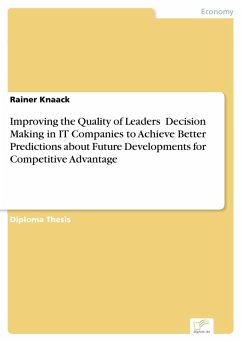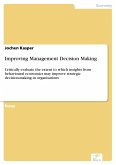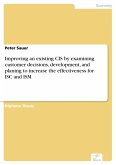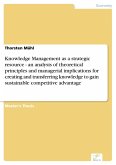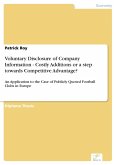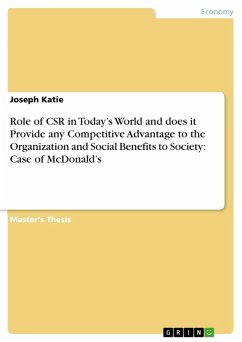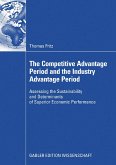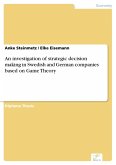Inhaltsangabe:Abstract: Over the last few years, professional dealing with information ¿ named Knowledge Management, in the following abbreviated as KM, ¿ has developed into an important issue in modern economy: Due to causes like worldwide networks, accelerated product life cycles and faster changing markets, knowledge and its management gains growing attention. These impacts lead to managers¿ inability dealing with knowledge in the right way at the right point of time to achieve a high quality of decisions with positive and sustainable influence. The approach is based on the author's hypothesis to optimize the decisions¿ quality by capturing senior practitioners¿ knowledge at management level working for a German IT Company. The approach's core is to capture and utilise this certain type of knowledge captured in professional biographical case studies. The thesis¿ goal is to design a method by demonstrating the example in capturing this so called tacit knowledge of three IT practitioners as a needful complementation to software solutions. This might help to reflect and prepare for upcoming changes. This thesis aims to clarify the status quo of knowledge capture currently used in IT companies. In industrialised societies, tacit knowledge becomes a continuously more important asset to sustain or expand competitiveness. Existing management systems, mainly software solutions, basically capture explicit knowledge and are of limited use for company and staff: As these systems do not completely capture the aspects of tacit knowledge, especially possessed by senior employees, the thesis' approach is sorting out problems, possibilities and requirements for finding benefits and solutions in capturing and using this type of knowledge. For addressing these problems, three senior decision makers have been chosen to bundle some of their above mentioned knowledge within a case study. In arrangement with the author¿s principal supervisor, Dr Mark C. Williams, the methodology of reflective practitioner research as a heuristic enquiry is used to allow the discovery of insights.1 Not only by the affective domain of human experience, but also by the arts-based enquiry, e.g. poetry, as Germany is a nation of poets and philosophers. It will be significant considering action research, reflective practitioner methodology and the transformation of tacit knowledge to explicit knowledge. In this case, heuristic data is collected by email-questionnaires. Data is then [...]
Dieser Download kann aus rechtlichen Gründen nur mit Rechnungsadresse in A, B, BG, CY, CZ, D, DK, EW, E, FIN, F, GR, HR, H, IRL, I, LT, L, LR, M, NL, PL, P, R, S, SLO, SK ausgeliefert werden.

